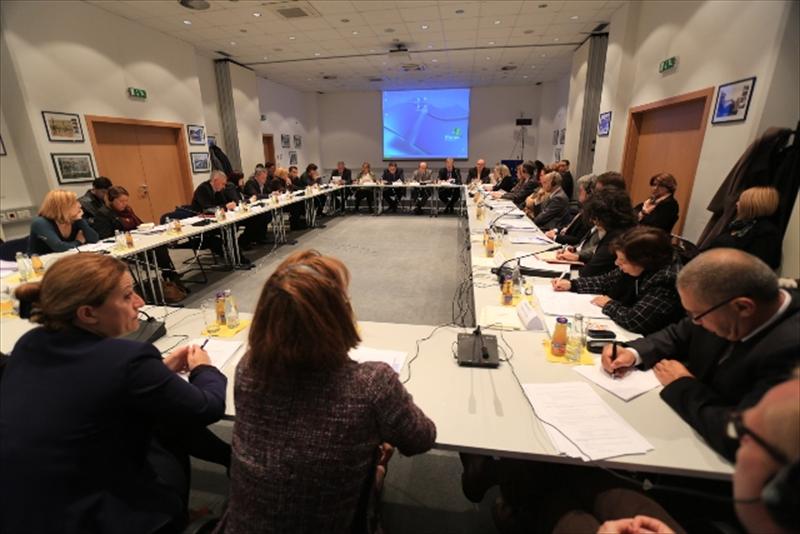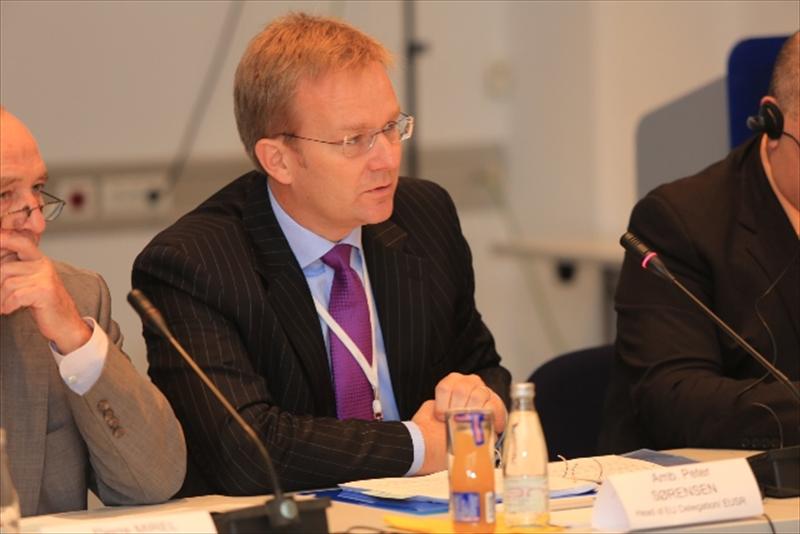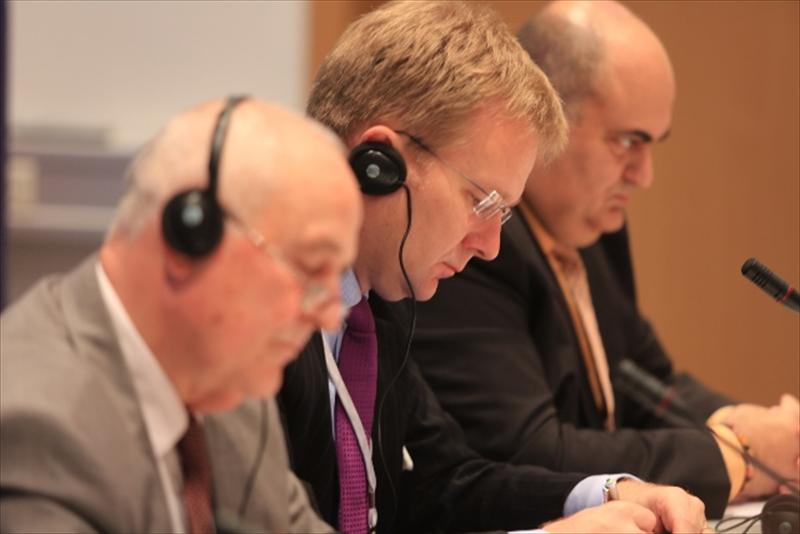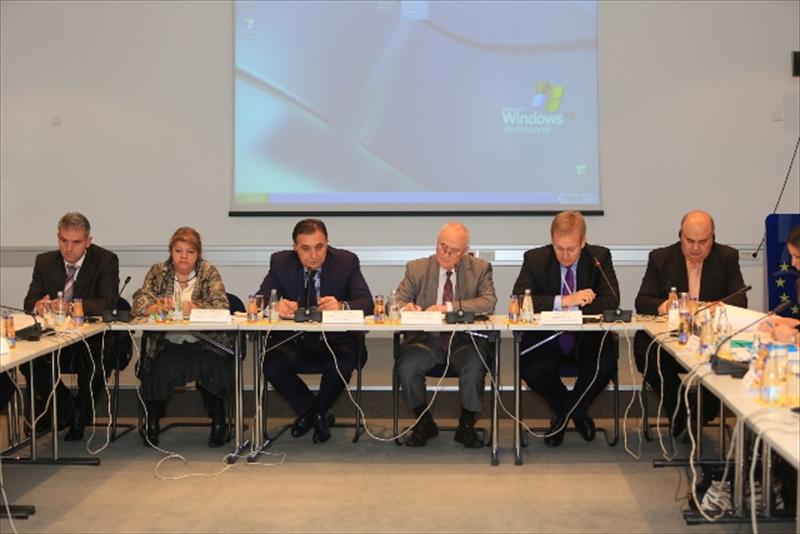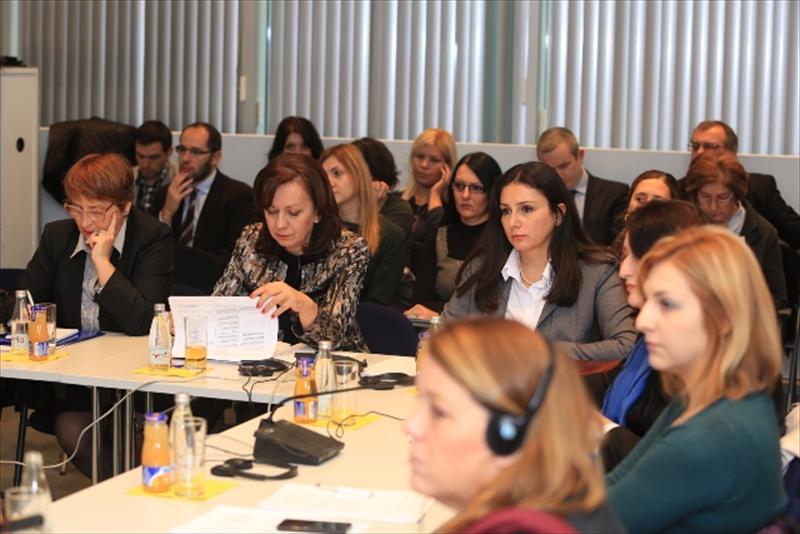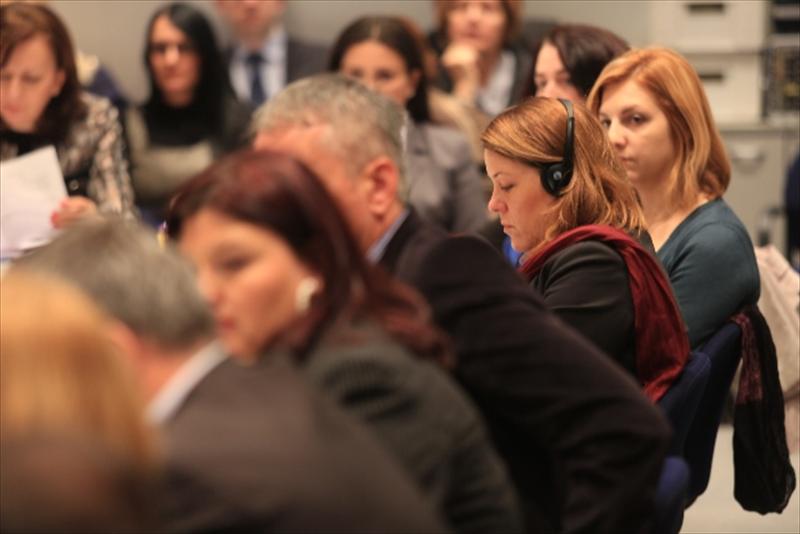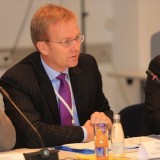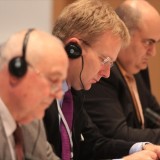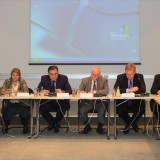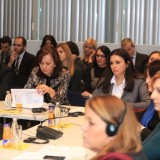Members of the Roma community remain among the most marginalised in Bosnia and Herzegovina. In an effort to improve social inclusion of Roma, the EU Delegation to BiH / EUSR organised in the EU house in Sarajevo a comprehensive ‘Follow up Seminar on Roma Social Inclusion in Bosnia and Herzegovina’ on 13 November 2013.
The aim of the seminar, which brought together over 30 representatives from BiH authorities at all levels, NGOs and International Organisations and representatives of the Roma community, was to take stock of progress made with regard to the implementation of the agreed operational conclusions of July 2011 and discuss concrete measures aimed at improving social inclusion of the Roma population. The focus of the thematic sessions was on two crucial issues – civil registration of members of the Roma community and education.
The seminar was chaired by the Director for Enlargement Policy and Strategy in European Commission’s DG Enlargement, Pierre Mirel , with the welcoming speech by the Head of EU Delegation to BiH / EUSR, Ambassador Peter Sorensen, and speeches by the BiH Minister of Human Rights and Refugees, Damir Ljubic, the Member of BiH Council of National Minorities, Nedzad Jusic, and the Chair of the Roma Committee within the BiH Council of Ministers, Indira Bajramovic.
On the occasion, Mr. Mirel said:
“There is a broad consensus in Europe that what is needed are concrete and forward-looking measures to improve the social integration of Roma. In 2012, the European Commission outlined its EU Framework for National Roma Integration Strategies up to 2020, calling on Member States to set their national strategies for Roma integration.”
Ambassador Sorensen stated:
“The EU has funded a project supporting the implementation of the respective national Action Plans, with a further project shortly to start that will help to improve the housing situation and level of social inclusion. The EU has also supported the adoption of the BiH Law on Anti-Discrimination – a key benchmark of the Visa Liberalisation process and will continue to support its implementation”.
Minister Ljubic said:
“Bosnia and Herzegovina annually commits up to 3 million KM in order to address the issues of housing, employment, health and identification of the Roma community needs. The greatest improvement has been achieved in the area of housing where we invested around 12 million KM until 2012.”
The Member of BiH Council of National Minorities, Nedzad Jusic, emphasized that “Roma in BiH are not satisfied with the implementation dynamics of Action plans and with the quality of the services provided to the beneficiaries during the Action plans implementation”.
The Chair of the Roma Committee within the BiH Council of Ministers, Indira Bajramovic, said that “nothing was implemented from the agreed operational conclusions of July 2011 and the only achievement was the revision of Action plans”.
At the end of seminar, the participants agreed upon the operational conclusions. They will be placed soon on the website of the EU Delegation in BiH / EUSR.
Bosnia and Herzegovina participates in the Decade of Roma Inclusion 2005–2015. BiH will hold the chairmanship in the last term of the Roma Decade (1 July 2014 − 30 June 2015).
To read the full speech of Ambassador Sorensen, click here

